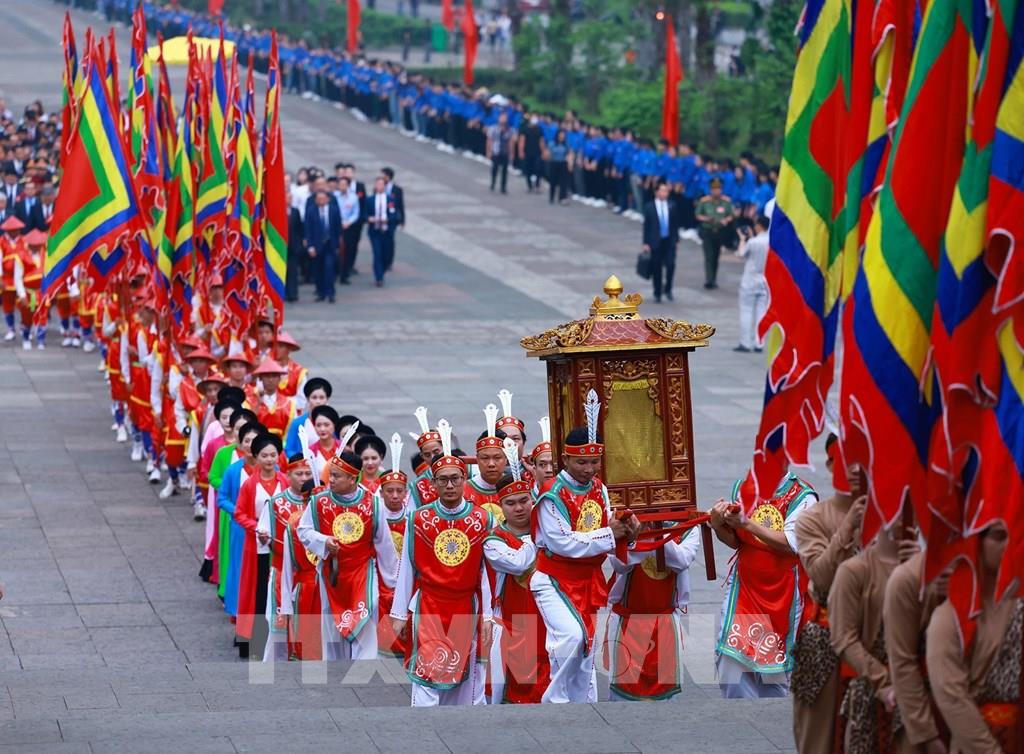The worship of the Hung Kings is an important part of Vietnamese culture and history, especially in Phu Tho Province. This region is considered the homeland of the Hung Kings, who contributed to the founding of the nation and the establishment of the Van Lang civilization. Here are some detailed insights into this belief system:
1. Origins and History
Hung Kings: According to legend, the Hung Kings were the first kings of Vietnam, descending from Lac Long Quan and Au Co. They founded the Van Lang dynasty and are regarded as the ancestors of the Vietnamese people.
Belief System: The worship of the Hung Kings dates back to ancient times and reflects the gratitude of the people towards their ancestors and the kings who played a significant role in nation-building.
2. Worship Locations
Hung Temple: Located on Nghia Linh Mountain in Hy Cuong Commune, Viet Tri City, Phu Tho Province, the Hung Temple is the main site for worshiping the Hung Kings and serves as the center of this belief system. Every year, the Hung Kings’ Death Anniversary is celebrated on the 10th day of the third lunar month, attracting millions of visitors and locals.
Other Temples: In addition to the Hung Temple, there are many other temples in the area, such as Upper Temple, Middle Temple, and Lower Temple, each holding its own significance and role in the worship of the Hung Kings.
3. Festival Activities
Hung Kings’ Death Anniversary Festival: This is the largest festival to honor and pay tribute to the Hung Kings. The festival features a variety of cultural, sports, and traditional artistic activities such as processions, lion dances, xoan singing, and folk games.
Ritual Offerings: During the festival, solemn rituals and offerings are conducted at the temples, expressing gratitude and reverence towards the ancestors.
4. Cultural Significance
Heritage Preservation: The worship of the Hung Kings is not only a custom but also a part of the intangible cultural heritage of the Vietnamese nation. It reflects the spirit of solidarity, pride in one’s origins, and the connection between the people and their ancestors.
UNESCO Recognition: In 2012, the worship of the Hung Kings was recognized by UNESCO as an Intangible Cultural Heritage of Humanity, enhancing the value and awareness of preserving traditional Vietnamese culture.
5. Current Situation
Tourism Development: The worship of the Hung Kings attracts many domestic and international tourists, contributing to the development of tourism in Phu Tho. The cultural activities and festivals not only allow the people to honor their ancestors but also introduce Vietnamese culture to the world.

